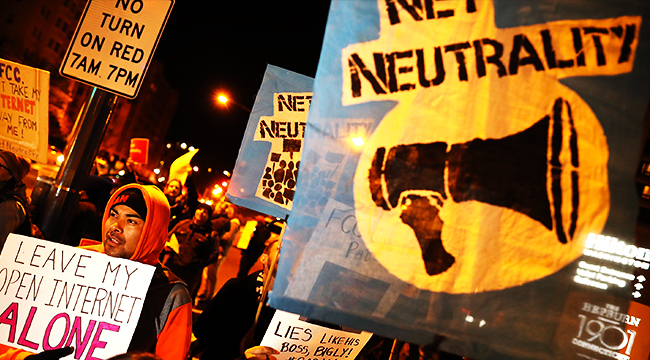
Yesterday, the FCC repealed net neutrality regulations, setting the stage for an enormous legal battle. But, like any bad decision, there are people defending it. So, to clear up the confusion, here are some of the arguments against net neutrality, and why they’re inaccurate.
- “The internet was never regulated before!”: The argument espoused by Senator Ted Cruz, calling everyone a “snowflake” and insisting the internet wasn’t regulated before, so what’s the problem?
The problem is that it was regulated before. In fact, regulation applying to the internet dates back to around 1996, with the Telecommunications Act of 1996, and then in 2005 bolstered those regulations. In fact, the FCC attempted to strike a compromise in 2010, but Verizon sued and got two parts, which prevented blocking sites and prevented “unreasonable discrimination” against lawful internet traffic, overturned. Which is why in 2015, the FCC passed its net neutrality regulations in the first place. What the FCC has done here is tell your internet service provider it has to abide by the bare minimum established by law.
- “But Ajit Pai was an Obama appointee!”: True! But he wasn’t made commissioner by Obama, just appointed to the commission, and that was at the recommendation of current Senate Majority Leader Mitch McConnell. It was Donald Trump who made Pai the head of the FCC. Pai is a Republican, supported by Republicans, so any decision he makes as commissioner is going to feel like it’s the responsibility of Republicans.
- “You’ll still be able to do stuff on the internet!”: That’s not really under debate, despite what Ajit Pai would want you to believe in whatever the heck these videos he made are supposed to be. What is at debate is how much it will cost you, and whether you will be free to do it in the way you like. Sure, you can take a selfie, but what if your internet service provider decides to block Instagram? Or charge Instagram $5 for every selfie you upload? It’s that last part that’s in question here.
- But regulation is bad! Really that hits deep at the heart of all this: There’s an ongoing argument in America about government regulation, how much is too much, and how bad too little might be. But that kind of misses the point of regulations. The speed limit on the highway is a great example. The law says you can’t drive so fast you risk the health and safety of others, but it’s the regulation that decides what speed that is. And if you think the speed limit on the highway is too slow, you can go to your state’s department of transportation, make your case, and if your case is compelling, the department can just go change the sign. Individual regulations can be good or bad, but regulation as a concept is neither. It’s all in how you execute it.
